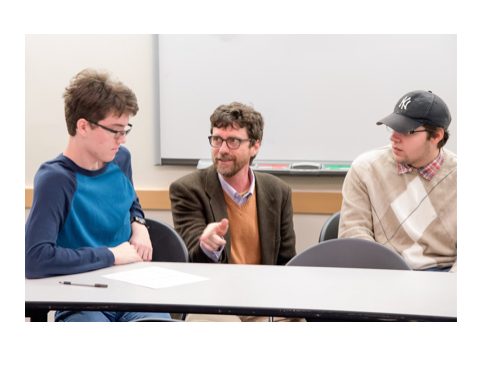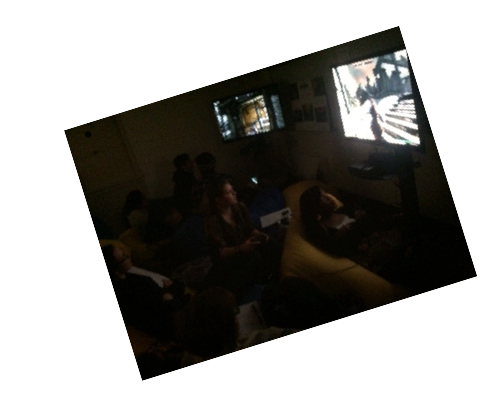Proudly walking in John Dewey’s well-worn footsteps, I am a progressive educator who does not limit teaching to the memorization and manipulation of given ideas that can be tested. To achieve the Student Learning Outcomes requires a de-emphasis on textbooks in favor of varied learning sources that look forward to the skills needed for future technological literacy, as well as an emphasis on lifelong learning and social skills that are assessed through each student’s projects and productions.
Basing evaluation solely on exams is ultimately both confused and devious. It is devious because it lulls students into complacency about the circumstances of both their present everyday lives and their future success. It is hubristic to think we know the future for which we are preparing students. Instead, real education cultivates flexible and innovative problem solvers by exposing students to a wide breadth of perspectives and educational experiences designed to equip them with the essential skills and learning necessary to thrive and succeed throughout their lives.
 Exam-oriented instruction is confused because it affords the wrong skills. For higher education to succeed as a life-long goal it must start from the students’ own experiences to teach the 21st century skills of critical thinking and imagining. Critical thinking enables the habits of reading, writing, and speaking which go beneath the surface meanings and first impressions and allow students to diagnosis the connections between their individual experiences and the social and cultural context in which they are embedded. Critical imagining gives students the flexible and innovative problem solving which gives them the ability to go from abstract analysis, to actually engaging and taking action in their own lives and communities.
Exam-oriented instruction is confused because it affords the wrong skills. For higher education to succeed as a life-long goal it must start from the students’ own experiences to teach the 21st century skills of critical thinking and imagining. Critical thinking enables the habits of reading, writing, and speaking which go beneath the surface meanings and first impressions and allow students to diagnosis the connections between their individual experiences and the social and cultural context in which they are embedded. Critical imagining gives students the flexible and innovative problem solving which gives them the ability to go from abstract analysis, to actually engaging and taking action in their own lives and communities.
To teach critical thinking and imagining, and thus to achieve the student learning outcomes, the classroom must be a community, and not just an instructional place were information is dispensed. Accordingly, the course assignments assume that students are not passive receptacles, like a clean hard disk, were information can merely be stored and hopefully retrieved later. To make knowledge stick, the assignments treat students as human beings with their own histories, communities and cultural contexts. As such the classroom is not a factory dispensing information, whose reception the assignments assess.
Instead, the classroom is treated as an arena of discovery that reflects the moral and ethical dimensions of the student’s own lives and communities. As such, the teacher’s task is not to profess knowledge as an authoritative figure, but to create a safe environment for the free discussion of ideas, attitudes and experiences.

